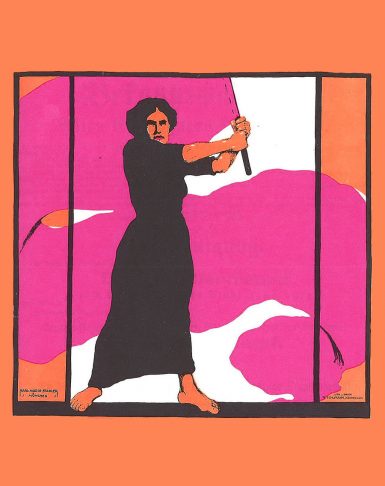Visit our Instagram to view posters our global design team created to celebrate this year’s IWD campaign theme: #ChooseToChallenge
In honor of International Women’s Day (IWD), on Monday, March 8th, I hosted Siegel+Gale’s eighth annual IWD celebration featuring five trailblazing female CMOs. We set out to explore the role of brands in gender equality.
IWD is a day acknowledging the social, economic, cultural and political achievements of women. We’ve witnessed significant advancements in recent months. For example, Kamala Harris made history as the first woman and woman of color to be elected U.S. vice president. There has also been meaningful progress regarding females on corporate boards, with legislation (e.g., in California), Nasdaq’s listing proposals and Goldman Sach’s requirements for its IPO clients. But there have also been staggering setbacks, particularly the nearly three million women who have left the workforce because of COVID-19.
As CMOs, we can choose to build brands that reflect and shape a more equitable culture and society. It’s apt that during this challenging time, this year’s IWD campaign theme is “Choose to Challenge.” Along with five global marketing leaders, we discussed leading with empathy, operating from a place of fearlessness, celebrating the diverse communities that we serve and challenging stereotypes around female leaders and entrepreneurs.
In closing, I asked our panelists, how will your brand choose to challenge gender bias and inequality in 2021? And as CMO, what is your commitment to forging a more gender-equal world? Here’s what they had to say.
 As a publishing house, we don’t just follow culture—we help shape and define it by providing a platform for a diverse array of voices. That must include women’s voices and BIPOC voices, but also gender non-binary and trans narratives. It means publishing books across a broad spectrum. We want that spectrum to include books and storytellers who illuminate new movements and light the way for what comes next. From a marketing perspective, we’re seeking to amplify those voices by building platforms or brokering partnerships with like-minded organizations or partnering with a diverse array of influencers and creatives.
As a publishing house, we don’t just follow culture—we help shape and define it by providing a platform for a diverse array of voices. That must include women’s voices and BIPOC voices, but also gender non-binary and trans narratives. It means publishing books across a broad spectrum. We want that spectrum to include books and storytellers who illuminate new movements and light the way for what comes next. From a marketing perspective, we’re seeking to amplify those voices by building platforms or brokering partnerships with like-minded organizations or partnering with a diverse array of influencers and creatives.
As the CMO of a company of predominantly women, I am personally committed to leading with honesty, empathy, and by example. Many of the women I lead are also moms who deal with countless situations before showing up for the day. As a parent myself, I understand that stress. For employees who are not parents but are caring for their parents and other loved ones, much of this work falls on women, as we know. That means it’s essential to give employees the space to have honest conversations and share the challenges that they’re facing. Employees must be able to show up as their authentic and whole selves. As a company, we recognize the importance of listening to address some of the challenges people are experiencing, such as limiting meetings company-wide or ensuring that we provide maximum flexibility. Creating inclusion partners so that we have the ability for people in the company to have partners that they can talk to about some of the challenges that they’re facing and just communicating as much as possible in plain English. We are all in this together because the truth is, many of us have lost something this past year, so we have to make sure that we recognize the impact that we’re giving to our employees and make sure we name what it is.
—Sanyu Dillon, Chief Marketing Officer, Penguin Random House
For over 100 years, IBM has been a leader in diversity, inclusion and equality in the workplace. In 1935, thirty years before the Equal Pay Act guaranteed pay equality between sexes, IBM’s then-president, Thomas Watson, established a policy promising equal pay for equal work at IBM. This commitment is also making its way into our products.
We are taking a firm stance in eliminating bias through technology, which is extremely powerful when you think about it. In addition to this, one of the cool things is that IBM launched the Be Equal initiative, a campaign to engage our employees and our clients and society and promote the advancement and fairness of gender equality in business and society. It’s engaged tens of thousands of women and men worldwide. On the heels of the initiative, I’m so excited about the Be Equal app launch. It’s a tool to be designed to help citizens diversify their consumption of content and broaden their exposure to more inclusive influences and interests. If you consider the world that we live in today, having an app that opens your aperture to various points of view and ensures that you’re getting diversity in the content you’re exploring is extremely powerful. The net-net is IBM as a company is taking a very strong stance, both internally and externally, with respect to this topic. The reality is we care about our employees and customers, as well as our place in society.
Personally, I need to check in with the women in my organization, as well as the men, to see how things are going at home and to make sure that I play a role in helping these 2.4 million women that have just dropped out of the workforce, helping get them back. One of the things that has been coming up for me over and over is I’m a mom to a son and daughter. The question that I’m always asking myself is how should we be raising our boys right now? I don’t know that I have all the answers to that, but I think that that is something that’s very top of mind. How do we raise allies in our boys and our girls?
—Carla Piñeyro Sublett, SVP, Chief Marketing Officer, IBM
Dubai Holding is certainly committed to making the workplace inclusive. We invested heavily in the initial phase to get our assessments done, the gap analysis, identified opportunities, invested heavily in initiatives and programs that address that. And then there are the KPIs. We actually literally have the KPIs embedded in the scorecard of every single CEO of our operations. Our operations span real estate, hospitality, business parks and entertainment. The matter is taken really very seriously. We know that this is not the end game; there’s a long way to go. But I’m extremely optimistic about how this topic has been undertaken, not only at the corporate level but even at our operations and companies.
Personally, I would like to invest more time in mentoring other women around me. The reason is I have seen firsthand environments where men comprise 90% of the population. Therefore, you have to cut through and prove yourself. You have to work tirelessly to ensure that all of these stereotypes about UAE nationals or women in general actually change. Hence, I genuinely believe by lending a hand to other capable women, we will be in a position to change perceptions.
Despite all the advancements that we have made in education in the Middle East, there is still a lot to be done to empower young adults and the next generation of boys to accept women working and running businesses. From my perspective, it all starts at home, where they can see female role models like their moms. This will help shape their perceptions about other women.
—Huda Buhumaid, Chief Marketing Officer, Dubai Holding
Well, I’ll start with Mattel at large. I’m very proud to work at this company. There is a lot of female representation. 56% of our employees are women. 51% of our employees that are women are in leadership positions. We’ve got a good baseline, but, of course, there’s always more to do. Mattel at large has been eager to try to get more women interested in the overall industry. So, we recently created a mentorship program based on our founder, Ruth Handler, with the Women in Toys association. It’s the Ruth Handler Mentorship Program to help young women grow and learn from other leaders and develop a robust career path.
Another thing Mattel has been working on with retail partners is to remove gender labeling in toy departments. Many retailers have certainly done that, but again, a doll can be for anyone. An action figure can be for anyone. You don’t need to prescribe the kids that play with these toys. We’ve done a lot throughout the years to promote a message of empowerment and inspire girls to believe they can be anything, but a few years ago, we discovered a study done by New York University. Starting at the age of five, girls actually started to doubt their capabilities and competencies, vis-à-vis boys. That’s been titled the Dream Gap. That moved us, and we started the Barbie Dream Gap project to help girls transcend this issue. We’re funding more research to understand the root cause. We’re investing a lot in role model dolls. We’re creating inspiring content and even curriculum to help kids transcend, girls specifically, this Dream Gap phenomenon. We realized that brands need to have positive messaging, and they need to walk the talk. Social activism and social impact are now pillars of the marketing strategy of Barbie.
On the home front, I’m always encouraging my teenage daughters to participate, raise their hand in class, speak up, push themselves into areas that are not as comfortable as others. I do the same with my team. I’ve got a great team of women and men, and I want to make sure they appreciate that the more versatile they are, the more opportunities that will open up to them. I am always mentoring folks, not only at Mattel, and encouraging them, just like my kids, to raise their hands and go for things. It’ll broaden their career opportunities in the future.
—Lisa McKnight, SVP, Global Head of Barbie & Dolls Portfolio, Mattel
As we’ve heard, scorecards are essential. What gets measured gets done. Having an equality measure and an improvement to our gender list, that’s really important, and that’s in all of our senior leader scorecards across the bank. Additionally, gender-diverse shortlists have always been a priority, but at HSBC, it’s not optional any longer. It’s become mandatory, particularly since we started moving into those senior ranks, because that’s also a way for us to see more talent across. That’s something we’re committed to.
We talked about inclusion, and we know that diversity is often very local when representing the communities that we serve, but inclusion is global. Therefore, HSBC is committed to doing as a brand is inclusive hiring practices and having that integrated and hardwired into how we actually move people around inside the bank and onboard new people.
COVID is not an equalizer, and we know its impact on women’s careers. It hasn’t been a blip; it’s been a catastrophe. Personally, this has really been a reset moment. The future of work has been profoundly disrupted because there’s been a structural shift in the way we work. It’s not an aberration. When we hear some people say that work from home over the past year has been an aberration, you’ve got to wonder why they won’t examine rethinking these structural shifts and what both women and men are saying, what they want in their careers. We’ve been doing a lot of that hard work about thinking around the flexibility, the adaptation, the learning opportunities, the types of careers, and the spaces and places that our colleagues want to create in terms of the meaningful career they’d like to have for themselves. So, I choose to challenge the future of work.
–Leanne Cutts, Group Chief Marketing Officer, HSBC
To request an invitation for future virtual roundtables visit events.siegelgale.com



